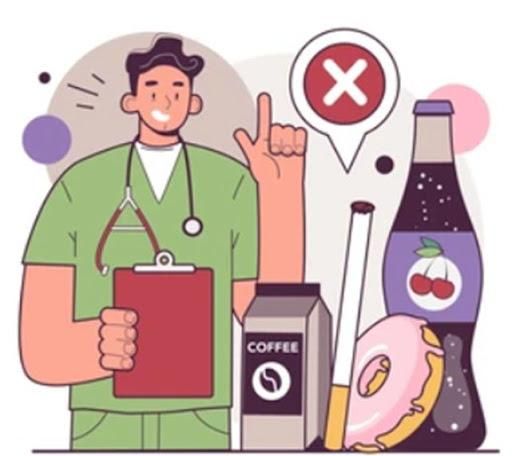https://cpapeu.com/pages/in-depth-bmc-pap-machine-guidesReasonable diet
Patients who drink and smoke must quit smoking and drinking if they want to solve the problem of apnea, because smoking and drinking will stimulate the upper respiratory tract, which will lead to obstruction, thus aggravating the apnea situation. Therefore, it is also necessary to avoid stimulating foods such as alcohol, tobacco and coffee.
Losing weight
For patients with mild apnea, the first thing to do is to lose weight, as most patients with snoring conditions are overweight people. Keeping the weight standard can also help to relieve apnea.
CPAP machine not only relieves the patient's symptoms of drowsiness, headache and sleepiness during the day, but also relieves the patient's snoring at night. In addition, oral orthodontic appliances can also be used to ensure that the patient's upper airway is open, which can also relieve OSA to some extent.
Medication for OSA
For OSA, Modafinil can be administered for treatment which can also reduce drowsiness after treatment with CPAP. In addition, in the case of OSA caused by hypothyroidism or segmental hypertrophy, targeted medications are needed to prevent apnea symptoms from worsening.
Surgery for OSA
For OSA caused by nasal disease, septoplasty or penduloplasty may be a good choice. If the OSA is caused by nasal polyps, then nasal polypectomy should be performed. If the OSA is caused by a swelling in the throat area and neck, then the appropriate resection is performed, but not all apnea patients are suitable for surgical treatment, and the results may vary from person to person.
A recent study in the United States showed that tongue enlargement is also associated with sleep problems. Researchers at the Perelman School of Medicine at the University of Pennsylvania made MRI images of the airways of 67 patients and came to these conclusions.
The patients all suffered from OSAHS and obesity. They underwent MRI after losing 10% of their weight. The results showed that their tongues also successfully "lost weight" and their OSA symptoms were relieved by 31%. The lead author Richard Schwab said, "In fact, the more weight tongue loses, the more apnea symptoms can be relieved."




 Photo by
Photo by  person holding black smartphone on white textile
Photo by
person holding black smartphone on white textile
Photo by  StableDiffusion
StableDiffusion
 Photo by
Photo by  Photo by
Photo by 
 roommate as a therapist
StableDiffusion
roommate as a therapist
StableDiffusion
 woman in white shirt eating pizza
Photo by
woman in white shirt eating pizza
Photo by  person holding remote pointing at TV
Photo by
person holding remote pointing at TV
Photo by  person holding assorted clothes in wooden hanger
Photo by
person holding assorted clothes in wooden hanger
Photo by  a couple of
a couple of  friends cleaning apartment
StableDiffusion
friends cleaning apartment
StableDiffusion
 man driving car during golden hour
Photo by
man driving car during golden hour
Photo by  bacon strips and melted cheese topped fries on oval white and blue platter with gray stainless steel forks
Photo by
bacon strips and melted cheese topped fries on oval white and blue platter with gray stainless steel forks
Photo by  selective focus photography of eyeshadow palette
Photo by
selective focus photography of eyeshadow palette
Photo by  brown wooden framed white padded chair in between green indoor leaf plants inside bedroom
Photo by
brown wooden framed white padded chair in between green indoor leaf plants inside bedroom
Photo by  women forming
women forming  taking
taking  man in red polo shirt pouring wine on clear wine glass
Photo by
man in red polo shirt pouring wine on clear wine glass
Photo by  woman in black jacket standing on road during daytime
Photo by
woman in black jacket standing on road during daytime
Photo by 
 StableDiffusion
StableDiffusion
 StableDiffusion
StableDiffusion
 student thinking i shouldnt have procrastinated all semester
StableDiffusion
student thinking i shouldnt have procrastinated all semester
StableDiffusion
 Photo by
Photo by  Photo by
Photo by  Photo by
Photo by  StableDiffusion
StableDiffusion
 StableDiffusion
StableDiffusion
 Photo by
Photo by  Photo by
Photo by 


 Lumiere figure at the Disney Store at the Ala Moana Shoppi… | Flickr
Lumiere figure at the Disney Store at the Ala Moana Shoppi… | Flickr
















